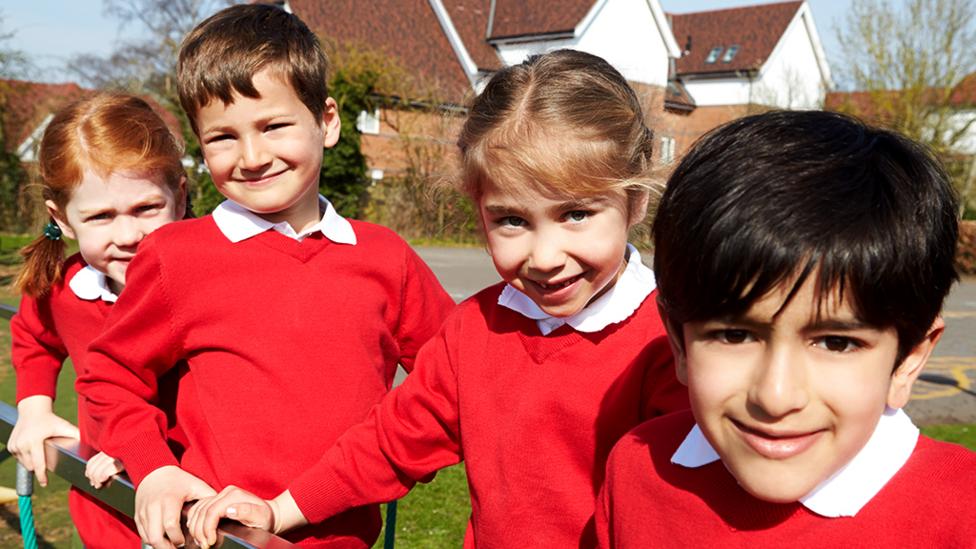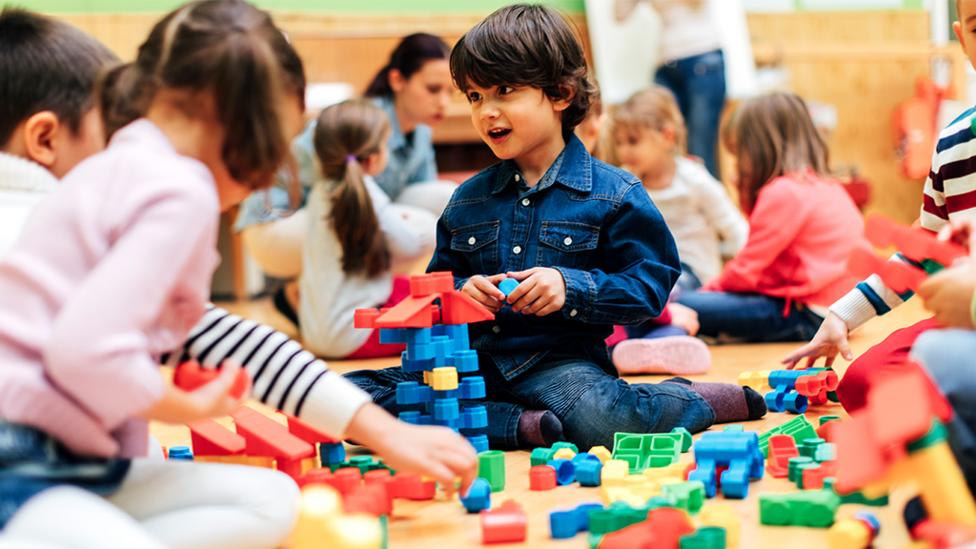How to help your child make friends at primary school
Worried about how your little one will cope at big school? The start of term can be an emotional time for everyone, especially if your child is heading off to a new school. It's daunting sending them out into the big wide world, but whatever stage they're at, there's a lot you can do together at home to build their confidence and support your child as they make new friends at primary school.

Tip 1: Encourage empathy early on
Children often don’t start to form ‘proper’ friendships until well into primary school, but you can encourage them to think about other people’s perspectives much sooner. Practising turn-taking by playing simple games, or alternating with you to do something fun like jump in a puddle really helps develop their ability to be considerate.
Tip 2: Stand back while they solve squabbles
Being able to resolve conflict is a vital part of making and keeping friends – and falling out is a very normal part of primary school life. Try to stand back and let kids work out their differences for themselves…by learning to do this now they’re building essential skills for life.
Tip 3: Take time to talk every day
See if you can set aside some time every day to talk to your little one about how their day went and what they’re expecting from tomorrow. That way, you can help them anticipate any tricky situations and plan how they might behave. Bedtime is a great time to do this, as that’s when kids’ minds will naturally be digesting their day.
Tip 4: Help children name their feelings
Children of early primary school age might seem grown up, but they’ll still need help understanding their own emotions. Put a name to what they might be feeling whenever you can…. ‘Well, I think you were feeling quite frustrated when you kicked the tower over’. Encourage them to consider others by asking questions like ‘how do you think Sam felt when that happened? How would you have felt?’
Tip 5: Spot the signs of bullying

Arguments and upsets are part of school life, but when such behaviour keeps being repeated bullying could be a factor – particularly if you’ve noticed that your child is more withdrawn, more aggressive, or isn’t keen to play with others. Stay calm, listen and reassure your child that the situation can be improved by taking action. The Anti-Bullying Alliance has more advice on how to handle bullying.
6. Notice and praise caring behaviour
Make a point of praising your child when they get it right – tell them how proud you are when you spot them being kind and thoughtful to a friend or schoolmate. Be explicit about why what they did was good and talk about how it might’ve made the other person feel, just as you would with less desirable behaviour!
Tip 7: Work out some 'opening lines' together

Talking to new people can be scary whatever your age, and for some children it can be useful to work together to think of some 'opening lines' they could use to start a conversation. Planning out simple things they could say such as 'I like your school bag' or 'What did you do at the weekend?' can make them feel that bit more prepared to face a playground full of new faces.